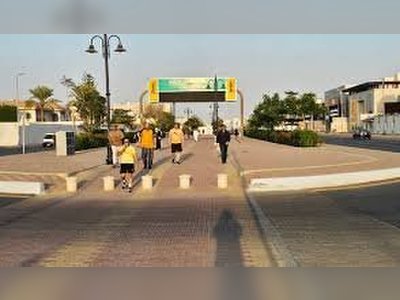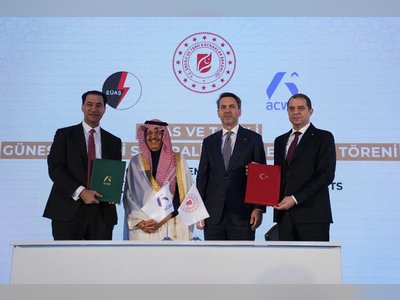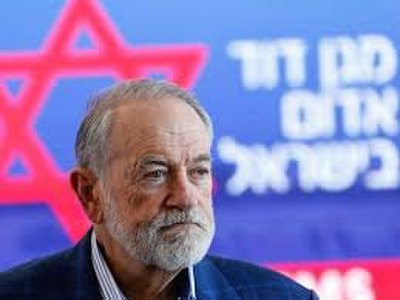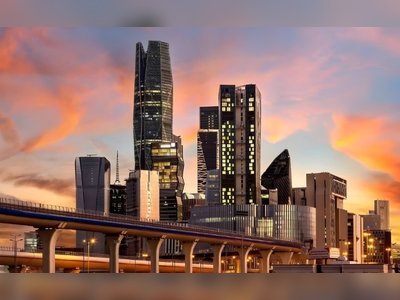To mask or not to mask: WHO makes U-turn while US, Singapore abandon pandemic advice and tell citizens to start wearing masks
In this instalment, we look at masks. To urge citizens to wear or not to wear is a question that has vexed many governments
As the world grapples with the Covid-19 pandemic which has made more than a million people sick and caused more than 58,000 deaths so far, one issue has divided the international medical community: should everyone wear masks to slow the spread of the coronavirus?
From the start, the World Health Organisation (WHO) said the answer was ‘no’. Masks should be worn by those who are sick, and medical and care workers, according to the global body. There was no need for people who are well to wear them.
That position was adopted by countries such as the United States, Britain, much of Europe, Australia, New Zealand, India, South Africa and Singapore. They emphasised frequent handwashing and social distancing, by keeping at least a metre apart from others in public places, and the need to save available masks for health care workers.
“There is no specific evidence to suggest that the wearing of masks by the mass population has any potential benefit,” said Dr Mike Ryan, executive director of WHO’s health emergencies programme, as recently as Monday.
All that changed this week. On Friday, both the US and Singapore switched to advising citizens to wear masks when they leave their homes. The WHO also made a U-turn itself, with Ryan saying: “We can certainly see circumstances on which the use of masks, both home-made and cloth masks, at the community level may help with an overall comprehensive response to this disease.”
Prompting the change was growing evidence that some people infected with the coronavirus do not show symptoms and are able to make others sick.
President Donald Trump said Americans were now being advised to wear “non-medical cloth” face coverings when they go out. The US had more than 245,000 confirmed cases and more than 6,000 deaths as of Friday.
Trump said wearing a mask would be voluntary, and he was unlikely to wear one himself. “I don't think I'm going to be doing it,” he said. “Wearing a face mask as I greet presidents, prime ministers, dictators, kings, queens – I just don't see it.”
The new advice represents quite a change, considering that only in February, US Surgeon General Jerome Adams tweeted: “Seriously people – STOP BUYING MASKS! They are NOT effective in preventing the general public from catching #Coronavirus, but if health care providers can’t get them to care for sick patients, it puts them and our communities at risk!”
Singapore, which had been steadfast in telling its citizens not to wear masks if they were not unwell, changed its stance as its confirmed cases crossed the 1,000 mark, with six deaths by Saturday morning, and will start distributing reusable masks to all households from Sunday.
With a rising number of Covid-19 patients not connected to earlier cases, meaning it is not known how they were infected, plus evidence that some infected people showed no symptoms, Prime Minister Lee Hsien Loong announced on Friday that the government would no longer discourage the use of masks.
Lessons from Hong Kong and elsewhere
One reason for the change of heart is that as Covid-19 ravaged countries like Italy and Spain, and spiked alarmingly elsewhere, experts noticed that communities used to wearing masks had recorded slower infection rates.
In Hong Kong, Taiwan, South Korea, Thailand and Vietnam, wearing masks in public is so widely accepted that those who leave home barefaced risk dirty looks or being told off. In Europe, the Czech Republic and Slovakia bucked the western trend, encouraging the use of masks by everyone.
“Universal masking, as a package of anti-epidemic measures, including greater social distancing and hand hygiene, has been instrumental in keeping Covid-19 in check,” said infectious diseases expert Professor David Hui Shu-cheong of the Chinese University of Hong Kong.
Wearing masks in public has been ingrained in Hongkongers’ collective psyche since the deadly severe acute respiratory syndrome epidemic of 2003, and experts now believe the habit helped the city of 7.4 million keep its Covid-19 numbers down to 845, with four deaths as of Friday.
Hong Kong also weathered the first wave of the outbreak with a flatter epidemic curve than many other places where infections have soared. Observers consider the Hong Kong numbers remarkable given its proximity to mainland China, where Covid-19 began, and its status as an international transport hub.
In Europe, the Czech Republic was the first to make it mandatory to wear a mask while in public, and said it helped rein in its Covid-19 numbers. The country of 10.6 million had 3,237 confirmed cases and 31 deaths as of end March, compared with more than 115,000 cases and almost 14,000 deaths in Italy and over 110,000 cases and 10,000 deaths in Spain.
Since mid-March, all Czechs have had to wear masks – mostly home-made cloth versions. Slovakia has also made it compulsory. On Monday, Austria mandated shoppers to wear masks in supermarkets, with Chancellor Sebastian Kurz saying: “I am fully aware that masks are alien to our culture. This will require a big adjustment.”
The review of the advice on wearing masks also came about as frontline doctors and researchers understood more about how the new coronavirus spreads. They now believe it can infect people not only through the mouth and lungs but also via the nose, suggesting that masks can help slow the spread of the virus.
In both the US and Singapore, what has not changed is the advice that surgical masks ought to be reserved as far as possible for health care workers exposed to Covid-19 patients and others in care settings.
Asked on Wednesday if people should wear masks when they are in short supply for health workers, Trump said: “It doesn’t have to be a mask. It can be a scarf.”
Singapore is encouraging its people to use reusable masks. The WHO emphasised on Friday that surgical masks should be reserved for medical professionals.
Review prompted by new evidence
The US administration debated and decided to change its advice on masks in recent days. On Tuesday, Dr Anthony Fauci, director of the National Institute of Allergy and Infectious Diseases, told CNN that the White House Coronavirus Task Force was discussing the issue.
On Thursday, he indicated the advice would change and Americans would be encouraged to wear masks, saying: “Given the fact that we know that asymptomatic people are clearly transmitting infection, it just makes common sense that it’s not a bad idea to do that.”
On Friday, Surgeon General Adams acknowledged that some would find the change in position confusing, but said it followed new information that infected people without symptoms could be spreading Covid-19.
New data has shown that as many as 25 per cent of those infected had no symptoms, according to the US Centers for Disease Control and Prevention (CDC). That means an infectious person displaying no symptoms and not wearing a mask can infect healthy individuals who are also unprotected.
The novel coronavirus is believed to spread through tiny viral particles and droplets which can stay on surfaces or hang briefly in the air after a person coughs, sneezes or touches an object. A healthy person may get infected if those viral droplets enter his mouth, nose or eyes, if he touches his face, or comes into close contact with a Covid-19 patient.
A surgical mask can block splashes and large-particle droplets, but does not filter very small particles transmitted when a person coughs or sneezes and during certain medical procedures. The tightfitting ultra-high infiltration N95 mask used by health professionals is effective in blocking at least 95 per cent of tiny airborne particles.
The WHO has maintained that the virus is “primarily transmitted between people through respiratory droplets and contact routes” such as coughing and sneezing. Some recent studies suggest that infected droplets can travel further than 2 metres when a sick person coughs or sneezes, prompting calls to extend the use of masks.
Professor Yuen Kwok-yung, the University of Hong Kong’s (HKU) top microbiologist and an early proponent of wearing masks in the city, has described the case of a seven-year-old girl who resisted Covid-19 while her family members fell sick.
In a study published in the medical journal Lancet, he said the family of six travelled to Wuhan, the epicentre of China’s Covid-19 outbreak, and the girl was the only one in the family who did not contract the virus. The reason: she wore masks throughout their trip.
Dr Leung Chi-chiu, chairman of the advisory committee on communicable diseases at the Hong Kong Medical Association, said the universal use of masks was vital in reducing the spread of the virus.
“Transmission from asymptomatic infected individuals has been documented for Covid-19, and viral load is particularly high at the early stage of the disease. Masking, as a public health intervention, will probably intercept the transmission link,” he said.
There have been some concerns about the improper use of masks, and whether they give users a false sense of security, causing them to ignore critical hand-hygiene advice.
However, HKU’s Benjamin Cowling, professor of epidemiology and biostatistics, said: “I am not clear why there is a different standard applied to use in the community, that face masks are really, really an important part of protection of medical workers – I agree with that – but somehow not effective at all in the general community because people don’t know how to wear masks properly.
“If that’s really the case, the solution is to have a public education campaign, not to avoid recommending the use of masks.”
There are other benefits in more widespread use of masks. Shan Soe-lin, a lecturer in public health at Yale University, said the sight of everyone in masks can stimulate behavioural change by signalling the seriousness of the pandemic and the need for protection.
“It reduces stigma and encourages others to wear masks, which further amplifies the collective benefits,” she added. “People touch their faces an average of once every 2.5 minutes, which is a very hard, if not impossible habit to break. Covering your face keeps your hands away from your nose and mouth.”
Scramble to secure demand
Currently, there is a worldwide shortage of masks. Soaring demand and disrupted supply chains since the coronavirus outbreak have resulted in a worldwide scramble for supplies.
The annual global production of face masks in 2018 was estimated to be 9.1 billion, averaging about 25 million a day.
China, the world’s major mask manufacturer, raised its production by nearly 12 times to produce 116 million masks daily since the end of February. More than 2,500 companies, including 700 tech firms, were said to switch to producing masks.
China limited supplies initially to domestic use and was accused of hoarding, but then began sending masks overseas. The race for masks has led to accusations that the US has begun playing hardball to secure supplies for itself.
US mask manufacturer 3M has said the Trump administration had told it to stop exporting US-made N95 respirator masks to Canada and Latin America.
In Germany, the Berlin local government said a shipment of 200,000 US-made masks meant for it were “confiscated” in Bangkok and diverted to the US instead. A Berlin official condemned it as “an act of modern piracy”.
French regional leaders have complained of being outbid massively by American buyers for medical supplies. The president of the Île-de-France region, Valérie Pécresse, told the BBC: “I found a stock of masks that was available and Americans – I’m not talking about the American government – but Americans, outbid us. They offered three times the price and they proposed to pay upfront.”
Hong Kong boosted supply by funding local production, global procurement and even technological innovation, such as producing reusable masks made from quality fabric. The effort is expected to add 11 million masks a month to the city, but price gouging has yet to stop. In some cases, prices have increased by 10 times.
Infectious diseases expert Dr Joseph Tsang Kay-yan said collective wisdom was needed to meet world demand. “If everyone did their part – with those who have the means producing and inventing more masks, and those who don’t but at least are wearing some other facial covering, like a scarf, and most importantly, staying home to create social distance – then I believe we will have enough masks to win the war against Covid-19.”

















